Nutrition from nature
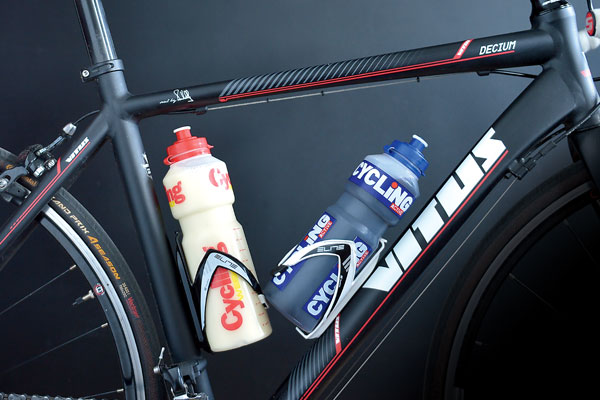
Scientists are constantly exploring the beneficial effects of various nutrients for both sports performance and health. Consequently, sports nutrition has developed rapidly over the past few decades and there are now thousands of companies selling sports nutrition products, ranging from vitamin pills to sport-specific ready meals.
On the face of it, ingesting dietary supplements or changing one's diet is a relatively simple way to enhance performance. Consequently, supplements are alluring to cyclists due to their performance benefits and equally attractive to sports nutrition companies as they are extremely profitable.
Unfortunately, very few dietary supplements are either effective or evidence based. Although a few have been shown to enhance performance, the majority of others lack scientific backing, or research has been inconclusive.
A further issue with certain supplements is the number of additives, preservatives and colourings that are used to make the product more palatable, increase shelf life and make it look attractive to the consumer.
For example, several commercially available sports drinks contain preservatives such as potassium sorbate and/or sodium benzoate, stabilisers such as acacia gum and sweeteners such aspartame and acesulfame K. If you consume these types of products infrequently then it may not necessarily be harmful. However, if you are riding daily and consume these products on a regular basis, there could be some adverse effects such as the negative effects of artificial sweeteners that are well documented.
It is exciting to see that several sports nutrition companies are aware that athletes are increasingly looking at ways to cut out additives in their diet and have started to manufacture natural sports nutrition products. Some natural nutrition ingredients are ergogenic in their own right without the addition of additives and preservatives. Let's look at the science behind performance-enhancing foods such as beetroot, milk, green tea, and fruit concentrates.
Beetroot
The latest race content, interviews, features, reviews and expert buying guides, direct to your inbox!
Relatively new and exciting research seems to indicate that increasing the amount of nitrate in the diet by simply drinking a pint of beetroot juice can enhance exercise performance.
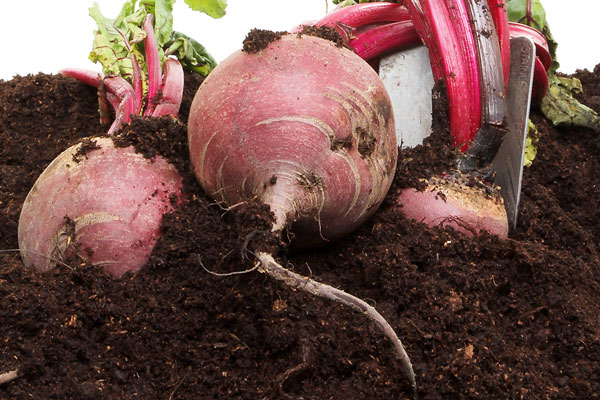
Nitrate is composed of nitrogen and oxygen and most farmers add nitrate to soil as plants use nitrogen to produce amino acids - the building blocks of protein.
Therefore, nitrates are naturally present in some vegetables and in particular lettuce, spinach, celery and beetroot contain large amounts. Tap water can also contain considerable amounts of nitrate.
Depending on where the root vegetables are grown, the amount of nitrate can vary greatly due to the nitrate content present in the soil.
Once ingested, nitrate is converted in the body to nitrite, which subsequently gets converted to nitric oxide. Nitric oxide is considered an important signalling molecule because of its role in muscle function. More specifically, nitric oxide can increase blood flow to the muscle because of its vasodilatory effects. If more blood can reach the muscle, more oxygen can reach the muscle and for cyclists, that is very beneficial.
The majority of the studies that have investigated the effects of beetroot on performance have used 500mg of nitrate which is found in approximately one pint of beetroot juice. Several studies have found that drinking one pint of beetroot juice has the following positive benefits:
- Reduces the oxygen cost of exercise at a moderate intensity.
- Increases time to exhaustion.
- Reduces systolic blood pressure.
- Enhances time trial performance.
- Early research on beetroot is promising and suggeststhat drinking one pint of beetroot juice 90 minutes before exercise can enhance performance.
Milk
Milk is a very interesting natural food because it is the only food source that we consume during early infancy. Milk contains all the major macronutrients needed by the body such as carbohydrate, protein and fat. It also contains the majority of the vitamins and minerals required by the body. The table on the right provides a summary of the nutritional properties of milk.
Several scientific studies have investigated whether milk is a good sports drink for athletes and unsurprisingly, almost all of them have found positive effects.
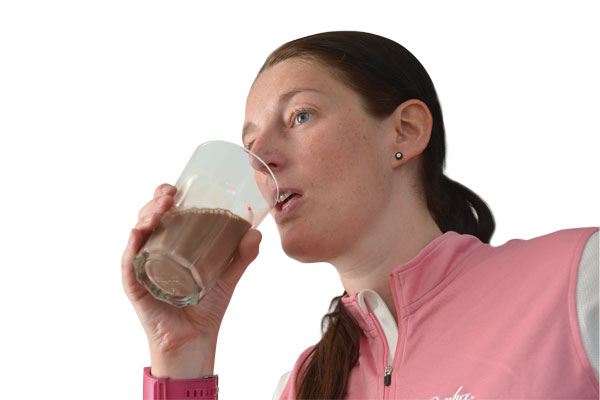
In 2008, a study compared the effects of an isotonic sports drink and milk to a placebo (water) on exercise capacity. Table right summarises the nutritional information of milk and a commercially available sports drink. The researchers found that the isotonic sports drink increased exercise capacity by an average of 17.5 per cent over the placebo and the milk trial increased exercise capacity by 10.4 per cent over the placebo.
In a separate study, researchers compared the effects of a chocolate milkshake to an isotonic sports drink in promoting recovery after an exhaustive bout of exercise. They found that when the milkshake was consumed, participants were able to increase exercise capacity four hours later in comparison to the sports drink. These findings indicate that the chocolate milk was more effective in promoting recovery, probably due to the carbohydrate and protein content of the milk. These findings have been consistently replicated in other studies showing that milk is an excellent drink to promote recovery after exercise.
As milk is naturally high in electrolytes, research has also been done on whether it is effective for rehydration. Milk has been found to be superior to water to replace fluid losses after exercise and just as effective as a commercially available sports drinks.
Due to milk's relatively high protein content, studies have examined whether it could be beneficial for increasing muscle mass. Predictably, several studies have found that milk and other natural dairy-based products are effective in promoting protein synthesis, building muscle mass and reducing muscle soreness after exercise.
As there is strong scientific evidence to show that natural dairy products are effective in promoting recovery after exercise, rehydration, and increasing muscle mass, it makes sense to incorporate them into a cyclist's diet.
Green Tea
Green tea originates from China and it is consumed by millions of people all over the world. Scientists are interested in green tea because of its high antioxidant content, in particular the high levels of flavonoids and catechins. A compound called epigallocatechin-3-gallate (EGCG) is the main active ingredient found in green tea and researchers have been investigating its effects on health, weight loss and sports performance.
With regard to health, researchers have found that drinking several cups of green tea per day can reduce the damage to cell lipids and DNA, enhance cardiovascular health and could reduce the risk of hypertension.
It is tricky to carry out research using cups of green tea because factors such as where the tea was grown, brewing time and water temperature all significantly affect the antioxidant content of the tea. Consequently, researchers have turned to using green tea extract because the dosage can be tightly controlled.
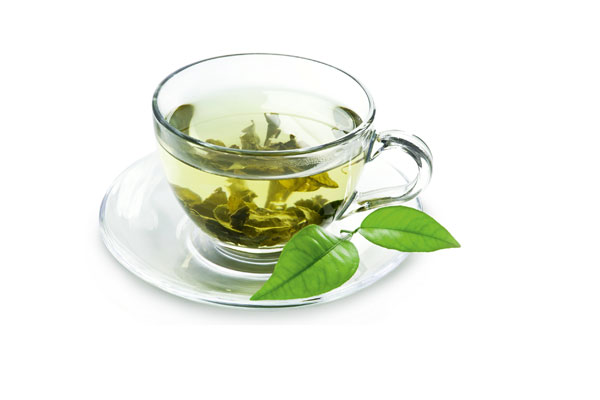
Studies using green tea extract have found that it can help with weight loss. A study recruited 132 obese adults and put them through a controlled diet and exercise programme. One group consumed green tea extract and the other group consumed a placebo for 12 weeks. At the end of the study the group taking the green tea extract lost significantly more abdominal fat.
A study conducted in Birmingham by Venables and colleagues found that green tea extract increased fat oxidation (burning). Participants were asked to cycle at 60 per cent intensity and after ingesting green tea extract they were able to burn 17 per cent more fat when compared to a placebo. These findings are remarkable because if more fat can be oxidised during cycling, carbohydrate stores can be preserved which can be beneficial during the latter parts of a race.
The research on green tea and its extract indicate that both could be useful for cyclists to help with fat loss and increase fat oxidation during cycling. Not all green teas are the same and Japanese Matcha green tea has been found to have much higher amounts of EGCG.
Fruit Concentrates
The concept of antioxidants and recovery has been around for a while. The theory is that as we increase the amount of exercise we do, more free radicals are produced which can damage our cells.
Antioxidants such as vitamin C and E can neutralise free radicals and can protect our cells from damage. This theory has led researchers to investigate the effect of several different anti
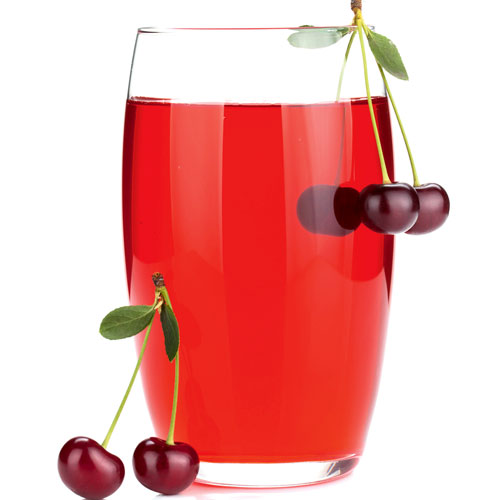
oxidant supplements such as vitamin C and vitamin E in much greater amounts than the daily recommended values.
Some studies have even looked at supplementing antioxidants in doses 10 times greater than the daily recommendations. The majority of these studies have not found any positive benefits of antioxidant supplements.
Antioxidants are also present in fruit and vegetables, and more recent research has attempted to look at the effect of polyphenol and phytochemical antioxidants in natural fruit concentrates on recovery after exercise.
A study examined the effects of concentrated cherry juice on recovery following the London Marathon. It was found to reduce inflammation and enhance recovery. Several others have found that concentrated cherry and pomegranate juice can reduce delayed onset muscle soreness that typically follows exhaustive exercise and can improve other markers of recovery.
Although these findings are promising, there is a disagreement among scientists on whether supplementing with antioxidants is a wise thing to do. There is some evidence that consuming large doses of antioxidants either from single vitamins (such as C and/or E) or natural foods could impair training adaptations; therefore strategic use is recommended. For example, it may not be a good idea to take natural antioxidants on a daily basis but they could be beneficial if used during stage races where quick recovery is crucial for successful performance.
The verdict
Nature has provided us with numerous foods that have been shown to be effective in promoting recovery and enhancing exercise performance. Natural foods don't contain the additives, preservatives and colourings that some sports supplements do which make them a healthy, attractive alternative for athletes who can benefit from daily use. While there are some dietary supplements and ergogenic aids that can significantly enhance performance, there are also natural alternatives that can have similar beneficial effects on both health and performance. The table below provides a summary of some natural alternatives to certain supplements.
| Isotonic sports drink | Coconut water | Coconut water contains carbohydrate and electrolytes, making it a good drink to have after exercise to replace muscle glycogen, electrolytes lost in sweat and fluid |
| L-Arginine | Beetroot juice | Beetroot juice reduces blood pressure and reduces the oxygen cost of moderate intensity exercise |
| Vitamin E antioxidant tablets | Concentrated cherry juice | Concentrated cherry juice can be an effective drink to consume during stage races as it can help reduce inflammation and reduce muscle soreness |
| Caffeine tablets | Green tea | Green tea has many positive health-boosting properties. It can enhance fat oxidation, increase metabolic rate and help with weight loss. |
| Powdered recovery drink | Milkshake | Dairy products such as milk are effective in promoting recovery after exercise, rehydration, and increasing muscle mass |
This article was first published in the Autumn 2012 issue of Cycling Fitness. Read Cycling Weekly magazine on the day of release where ever you are in the world International digital edition, UK digital edition. And if you like us, rate us!
Founded in 1891, Cycling Weekly and its team of expert journalists brings cyclists in-depth reviews, extensive coverage of both professional and domestic racing, as well as fitness advice and 'brew a cuppa and put your feet up' features. Cycling Weekly serves its audience across a range of platforms, from good old-fashioned print to online journalism, and video.